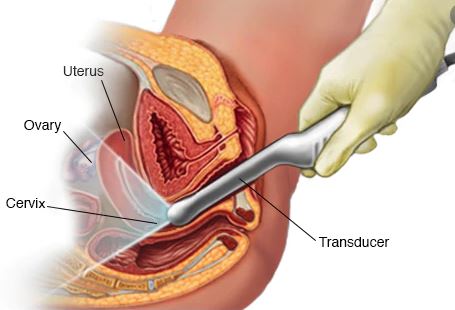What you need to know about Ultrasound Scan
Contents
An ultrasound scan, also known as sonography, is a medical test that uses high-frequency sound waves to produce images of structures inside of your body. These images can provide valuable information to diagnose and treat numerous diseases and conditions. The image produced is called a sonogram.
Ultrasound scans are commonly associated with pregnancy as they are often used to view the uterus and ovaries during pregnancy, providing an expectant mother with the first view of her unborn child. The scans can also be used to monitor the health of the developing baby. However, an ultrasound scan can be used for many reasons, including:
-
Assess blood flow
-
Diagnose problems with muscles, soft tissues, and blood vessels
-
Diagnose gallbladder disease
-
Check your thyroid gland, liver, kidneys, and pancreas
-
Examine a breast lump
-
Evaluate joint inflammation
-
Detect prostate and genital problems
-
Examine metabolic bone disease
-
Investigate a tennis elbow, frozen shoulder, or carpal tunnel syndrome
-
Guide surgeons’ movements during certain medical procedures, such as tumor treatment or biopsy.

What does the Procedure Involve?
There are two main types of ultrasound scans:
External ultrasound scan
During an external ultrasound scan, a trained technician (sonographer) apply a lubricating gel onto your skin over the area being examined.
The sonographer than places a small, hand-held device called a transducer against the area being studied. The transducer may be moved as needed to capture the images. The transduces works by sending sound waves into your body, collecting the ones that echo, and sending them to a computer that creates the images. These images can be interpreted by your doctor. Humans cannot hear the sound waves as they are too high of a pitch for us to hear.
Depending on the area being examined, you may be asked to change positions to let the sonographer get better access. You should not feel any discomfort or pain during the procedure.
Internal ultrasound scan
In some cases, an ultrasound scan may be done inside your body. This type of ultrasound is normally used to evaluate the internal reproductive organs or urinary system. During an external ultrasound scan, the transducer is attached to a probe that is inserted into a natural opening in your body. Here are some examples of internal ultrasound:
-
Transvaginal ultrasound – the sonographer uses a special transducer and gently inserts it into the vagina to get a quick look at the ovaries and uterus.
-
Transrectal ultrasound – a special transducer is placed into the rectum to create images of the prostate.
-
Transesophageal echocardiogram – the sonographer inserts a transducer into your esophagus to obtain heart images. This procedure is usually under local anesthesia and sedative.
When your ultrasound scan is complete, a radiologist will analyze the images and send a report to your doctor. Then, your doctor will share the result with you.
How Long Should I Stay in the Area?
You should be able to leave the hospital soon after your ultrasound finishes. Since the images of your scan will need to be analyzed, you may need to stay in the area for at least 3 to 7 days, or until the results are ready. When the results are ready, you will have to attend a follow-up appointment to discuss them with your doctor.
What’s the Recovery Time?
You can return to your normal activities, including work, immediately after an ultrasound scan. However, if you have an internal ultrasound scan that involves the use of anesthetic and sedative, you should wait about 24 hours until you are allowed to go back to your normal activities.
What About Aftercare?
There is generally no special aftercare following an ultrasound scan. You can drive, eat, and drink as usual straightaway. If the ultrasound scan involves anesthetic and sedative, you should not drive, operate machinery, or drink alcohol for a day.
What’s the Success Rate?
The success and accuracy rate of an ultrasound scan depends on what it is used for. It should be 100% accurate in detecting a fetal heartbeat. However, it may not be always accurate for other uses.
Ultrasound scan is very safe and there are no know risks from the sound waves used in the procedure. Unlike some other scans, such as CT scans, ultrasound scans do not involve exposure to radiation.
If you are undergoing an internal scan and are allergic to latex, make sure to let the sonographer know so they can use a latex-free probe cover.
Are there Alternatives to Ultrasound Scan?
The alternatives to ultrasound scan depend on the reason why you need the procedure. For instance, if you want to confirm your pregnancy, you can simply use a pregnancy test from the drug store or get a blood test. If you want to find out the sex of your unborn baby, you can get also get a blood test. For other uses, you may undergo other imaging tests, such as CT scan, MRI scan, or X-rays.
What Should You Expect Before and After the Procedure
Before an ultrasound scan, you may experience pain, swelling, or other symptoms, or you may want to monitor your developing baby’s health. After an ultrasound scan, your doctor should be able to confirm their diagnosis and create a treatment plan for you. If the procedure is done to check your pregnancy, you should be able to know the condition of your unborn baby, including its gender and heartbeat.
For an in-depth analysis of an Ultrasound Scan Procedure, watch this short video.
To check prices or to book an Ultrasound Scan Procedure, in Thailand or anywhere else in the world, head on over to MyMediTravel now!

